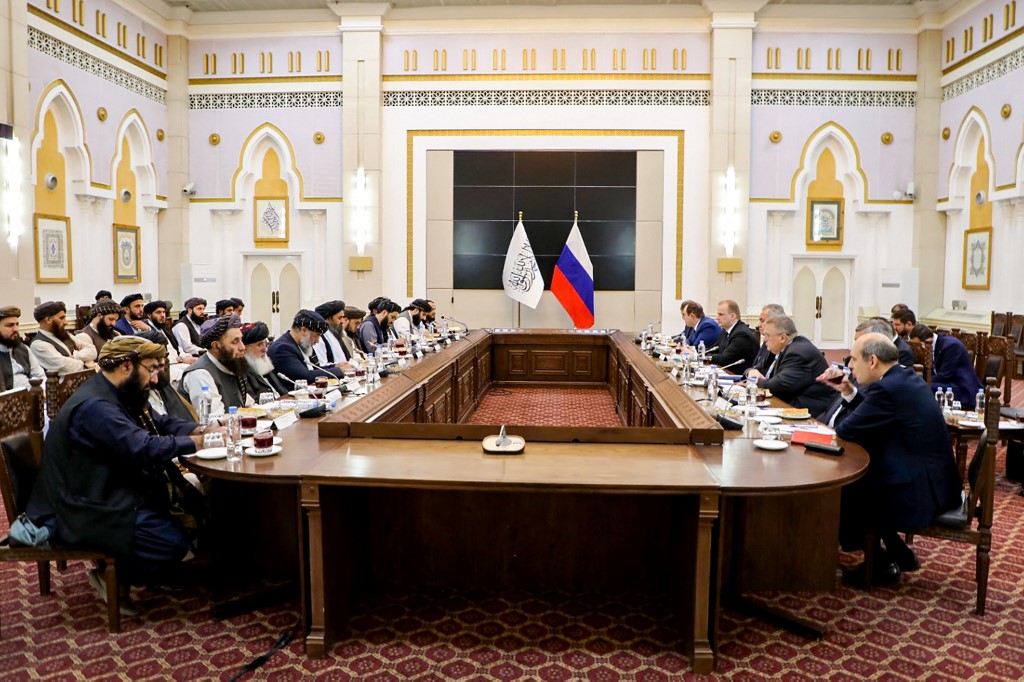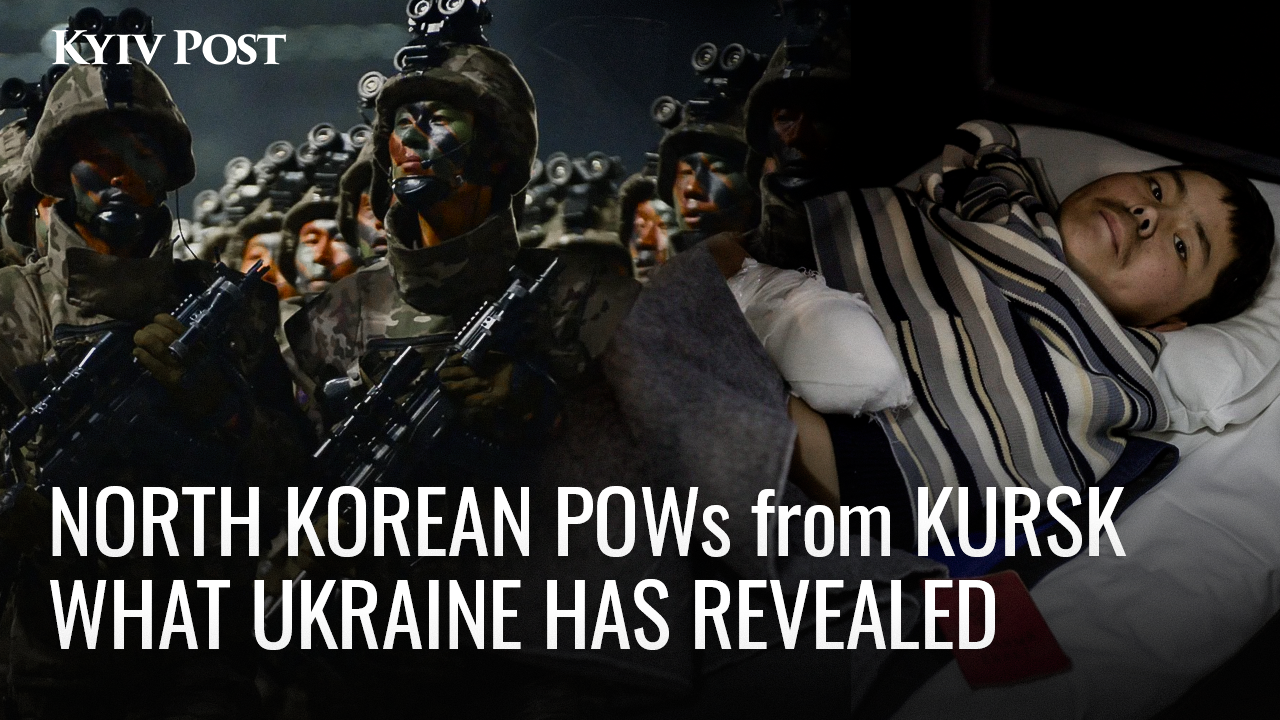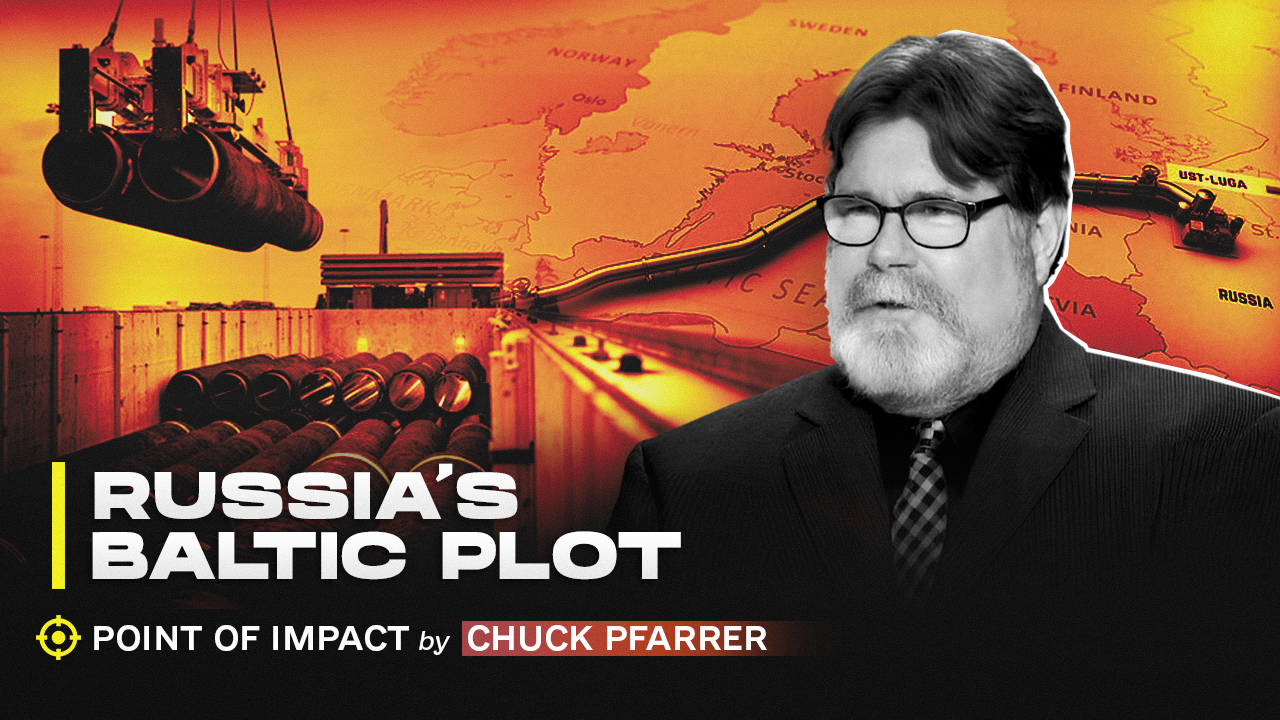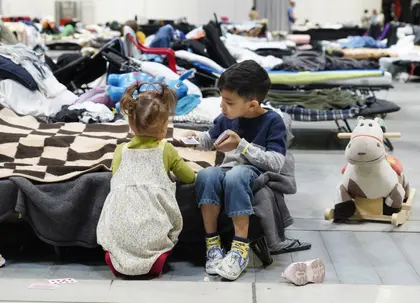Two months ago, in a widely reprinted article for the Royal United Services Institute (RUSI), summed up by the title “The Impending Betrayal of Ukraine,” Tim Willasey-Wilsey wrote that, failing to help Ukraine win, “the West will have years to repent the betrayal of the courageous Ukrainians, whose only crime was their wish to join the Western democratic order.” On the same day, German intelligence reported that, by 2030, Russia would be in a position to attack NATO. Some very good experts even pointed out that this could well be before then.
The international relations specialist is faced with a cognitive, political and rhetorical dilemma. Cognitive, because we have to think of two contradictory things: Russia’s predicted defeat due to its economy going to hell, and its remaining strength. Political. Each of the speeches made by Western leaders has an effect on the way Russia anticipates its actions, long since better than we do, and how opinions gauge the outcome of Russia’s war against Ukraine.
JOIN US ON TELEGRAM
Follow our coverage of the war on the @Kyivpost_official.
This is rhetorical, because in international relations, words are in part performative not so much in terms of action (acting directly or losing the war) as in terms of their influence on government decisions, which in turn have a direct impact on the outcome of the war. In particular, depending on whether one believes that Russia will win or lose within a time-frame compatible with the mandate of a Western leader, anticipatory action will differ.

Reports Say North Korean Troops Have Pulled Back After Heavy Losses in Kursk
On the one hand, to say that Russia is not only rearming, but also improving, faster than could have been expected even a year ago could sound like a form of defeatism. This would go hand in hand with Russian propaganda’s abundant talk of Ukraine’s inevitable defeat.
On the other hand, it could sound like a kind of recognition of Russia and the fact that it hasn’t totally fallen, despite multiple reports of its amateurism, gigantic technological flaws and vulnerability, not to mention its economic collapse. Ultimately, this observation would be unnecessarily and falsely alarmist for us since certain signs of a lasting and inevitable collapse are already there. Russia can withstand the shock for a few years, but not escape it. It would also be propaganda, because it would show a Russia on its feet.
Strong Russia, weak Russia: two mirrored propaganda scenarios
This observation is all the more disturbing given that some excellent specialists argue the opposite: apart from the fact that the massive delivery of weapons by Iran – at least until Israel struck Hezbollah – North Korea and, to an even lesser extent, China would indicate a structural weakness in the Russian army, the shortage of men would also be felt and would also explain Pyongyang’s much-appreciated help. Above all, extremely detailed and precise studies show that, despite their limitations and shortcomings, sanctions are having an impact and are affecting the Russian economy—and especially its finances. Some even predict that the war effort could be seriously affected by a lack of funding.
Yet both assessments must be taken together, or at least the two facts on which they are based are not completely contradictory. Russia can be both short of men and resources, in an almost desperate economic and financial situation, and still be able to show greater efficiency in war. Above all, in a few years’ time, it could be fielding firepower far beyond what it was two years ago.
It is also the initial false inferences – to speak of improvements in the Russian army would be defeatist and glorifying – that need to be questioned, because the subject here is first and foremost the truth. In fact, it’s Ukrainians in particular who now tend to take what’s going on militarily in Russia seriously. We need to take a close look at the reality of the threat – because when we speak of danger, we’re talking about both those who create it and those who suffer from it.
Above all, we urgently need to sound the alarm and see how we can respond. The assertion that the European Union, or certain countries within it, are next on the list, despite being members of NATO, is no fantasy: on the one hand, it can be argued that, taken together, the nations of the Alliance are much stronger militarily than Russia, but that Russia remains ill-prepared – and would be even weaker if Moscow were not defeated in Ukraine.
Moreover, to speak of Russia’s weakening would be both dramatically ironic and cynical. How can we explain to Ukrainians, who are being massacred by incessant bombardments and deadly drone attacks, that the Russian army has become weaker when it is constantly sowing death? Worse still, when certain Western politicians invoke this Russian weakness, it’s a way of clearing themselves of their inaction. It’s like saying: “Don’t worry! Russia will eventually wear itself out. Under these conditions, we’re not going to risk a nuclear confrontation.”
Paradoxically, this is the same narrative that contributes to inaction as the one that says we should “let it go” because Russia is too strong to be defeated. But not only is this discourse cynical, since it ignores the thousands of Ukrainian victims and the torture, systematic rape, deportation of children and forced executions in Russian-occupied territories, it is also contrary to the truth.
Putin is ready to sacrifice millions of Russians and his economy to continue the war to the end. For several years at least, he may inflict irreparable damage on Ukraine and the rest of the world.
How much? No one can say today. He can continue to kill, always kill, since that is its raison d’être. Russia will only be stopped if we decide to stop it, and that won’t be without the direct involvement of the Allies, as quickly as possible.
A sustainable war economy?
The basic data of the Russian economy seem to indicate a state of near-bankruptcy. Moscow’s all-out war against Kyiv has only aggravated trends that were already persistent before: the official inflation rate is 8.9%, but economists reckon it’s closer to 20%—the price of butter alone has soared by 34% this year.
The Russian Central Bank’s key interest rate has been raised to 21%, which means borrowing rates for individuals and companies of between 25% and 30%. Many will not know how to repay their debts. The ruble has seen its rate plummet to one euro for 110 to 120 rubles depending on the day, whereas it only took around 80 rubles to buy one euro in 2018 and 40 in 2014. Russia’s sovereign wealth fund has also seen its capital melt away to avoid increasing the budget deficit. 20% of companies have gone bankrupt this year.
In a country where infrastructure, outside the major cities of western Russia, was in a state of disrepair, Russia’s quasi-war economy (8% devoted to defense and probably more) imposes even more restrictions, and Russian railroads are set to cut their investments by 40% by 2025. Hospitals, civilian research centers and schools are also being sacrificed to the war. The fact is, the sanctions are biting harder and harder, despite their unacceptable holes. In addition, capital flight and brain drain, which did not start with the war, are increasing material and intellectual under-investment.
Although official unemployment is only 2.3%, this has led to labor shortages in many sectors. Only the defense sector is overheating. Nevertheless, Russia continues to benefit from resources generated by the circumvention (notably by India and China) of sanctions, or by their excessively selective nature (LNG continues to be purchased by several European countries). As a result, it continues to benefit from financial resources to feed its death machine. It can count on North Korea and China, as well as on Western components, notably American, which are smuggled into Russia via third countries and poor surveillance by Western countries.
While its arms and missile production does not seem likely to continue indefinitely, it can also count on abundant old Soviet stocks, sometimes reconditioned, which enable it to attack Ukrainian cities. It still manages to hire and, no doubt, better train, some 30,000 new recruits a month for its army.
Part of rural Russia also benefits from self-consumption.
While discontent is growing over shortages, meagre salaries and, even more so, pensions and the difficulties of daily life, there is nothing to suggest that the Russian people, who have been fed fatalism and resignation for decades, are ready to revolt.
They could continue to watch their country sink into the abyss and their young people die en masse without taking the slightest action. Putin knows this and intends to continue his war to the bitter end, if necessary at the cost of several million deaths. For him, the present and the future are death.
In short, on the one hand, Russia is not defeated and can continue its war of extermination against Ukraine for a long time to come, with ever more weapons and soldiers. No one can predict when the downward spiral will be fata – in reality, it’s more likely to be a few years than a few months. I wrote back in early January 2011 that Russia was doomed to fall and lose its great-power status, but that it could take thirty or forty years. Its own war has made the situation worse, but not to the extent of predicting a death certificate any time soon.
The Ukrainian economy is showing more strength and resilience despite the major damage to its people and infrastructure, particularly energy, but it doesn’t have the same depth. On the other hand, because Russia’s downfall has also been foretold, now is not the time to ease off the pressure, let alone seek a so-called peace agreement. This would give Russia a breath of fresh air, which it could use to further strengthen its war production and give it more means to attack, beyond Ukraine.
This is also the time to further strengthen sanctions: there are still too many circumvention easy opportunities, secondary sanctions are far from sufficient, monitoring of smuggling is incomplete and there are considerable loopholes – to take the example of LNG. This is also the time to seize and give to Ukraine all the funds of the Russian Central Bank. We’ll have to go even further, and even when Russia is defeated in Ukraine, we’ll have to continue to impose tough sanctions as a precondition for bringing criminals to justice, paying reparations and returning deported children to Ukraine.
In other words, the prospects for the collapse of the Russian economy are not immediate. All the more so, they require a long-term policy on the part of the Allies if the country is to be permanently weakened.
The failure of deterrence and negative expectations
The combined nature of the Russian economy’s massive difficulties and its persistent ability to spread terror are also indicative of the failings of our deterrent.
Firstly, by failing to act early enough to degrade Russia’s military potential, and by not going to the extreme of possible sanctions from the outset of total war, the Allies allowed Moscow to grow stronger. We let Russia organize, finance and maintain its war economy. Yet the enemy’s weaknesses were well known, and it would have been perfectly possible to hit its production units even harder, particularly with long-range fire. An aggravating factor was the lack of sufficient monitoring of the smuggling of components. Although Ukraine destroyed a significant part of the Russian equipment, Western military aid would have gone a long way.
Secondly, the – true – claim by Ukrainian fighters to have totally contained the Russian thrust and their inability, due to a lack of weapons in sufficient numbers, to carry out a victorious counter-offensive – apart from the success represented by the Ukrainian action in the Russian region of Kursk – gave rise to a misleading narrative.
It’s true that Russian troops have been gaining ground since late summer, albeit at the cost of huge losses. However, the Russian advances are far from considerable: the 1,000 km² or so gained over the last three months do not point to the collapse of the front that some experts are recklessly predicting. Here too, Western weapons in sufficient quantity, particularly to strike deep into the front line, could have changed the situation.
For example, many had predicted the imminent capture of Pokrovsk by the Russians two months ago, but the city has not yet fallen – although it is feared that, without additional weapons, this could be the case in an unpredictable period. Everyone knows that defeatism is one of the Kremlin’s most powerful propaganda weapons. It is irresponsible to embrace it, a fortiori to suggest that negotiations are inevitable.
Ukraine has demonstrated its ability not only to resist, despite the exhaustion of its troops and population, but also, under the worst possible conditions, to innovate.
Its drones can strike deep into Russian territory, destroying oil and ammunition depots and even military bases. It has also shown that it can strike a high-ranking war criminal right in the middle of Moscow. President Zelenskyy has also announced that Ukraine may soon use missiles of its own manufacture to reach Russia.
Of course, all this is not enough, and contrasts with the difficulties on the front line. We are a long way from Ukraine’s announced defeat. If arms deliveries continue, not only can this be avoided, but Russia will be forced to back down first.
We must therefore be lucid about the enormous military challenges ahead, draw the consequences of the Allies’ betrayed promises and their culpability before history and humanity – Ukraine knows this and is doing so – but also take the measure of Russia’s weakness and take advantage of it to go further. The resistance of the people, first of all in Syria, but also differently in Georgia and other countries to pro-Kremlin leaders –notably Serbia, as witnessed by the monster demonstrations against its president –should encourage us not to give in.
Organizing victory: there’s never a good time to negotiate, but now is the worst time.
So, it’s no coincidence that today, some voices are shamelessly pushing for negotiations with Moscow and imagining a peace agreement, which would in fact be no more than a continuation of the war and a preparation for the next one. Many are doing so out of concern for Moscow, knowing that the war will eventually get the better of the regime. Others remain petrified by the prospect of total Russian bankruptcy, not so much for economic reasons as for supposedly security reasons.
Others, notably in Western capitals, have internalized the fatalism of Kyiv abandoning part of its territory, as if they didn’t realize the dramatic consequences for Ukraine, but also for the security of Europe and beyond. Having abandoned any real desire to turn their own economy into a war economy, these short-sighted and deaf leaders remain comfortably seated on their prejudices which lead them, as has been the case since February 24, 2022, to so-called moderate solutions. This makes it all the easier for them to buy into defeatist narratives.
Now is the worst time to negotiate – if ever, as I often demonstrated shortly before total war, and even as far back as February 2016. For one thing, it would give Russia a lifeline, even though its collapse may be just a few years away. This impatience to get it over with is anything but strategic; it is its antithesis. Secondly, in the year 2025, if the Allies throw their full weight into the battle, Russia could easily be defeated. This is the only way to achieve a “lasting peace”. It is also the only condition for a “just peace”, firstly for the Ukrainians, and secondly in accordance with international law
While the Syrian people have shown us that Russia can be defeated, it is up to the civilized world to show that this can be the case in Ukraine and everywhere else where the Russian yoke is wreaking havoc on peoples.
This analytical commentary is reprinted with the author’s permission from his Tenzer Strategics blog. See the original here.
The views expressed are the author’s and not necessarily of Kyiv Post.
You can also highlight the text and press Ctrl + Enter













